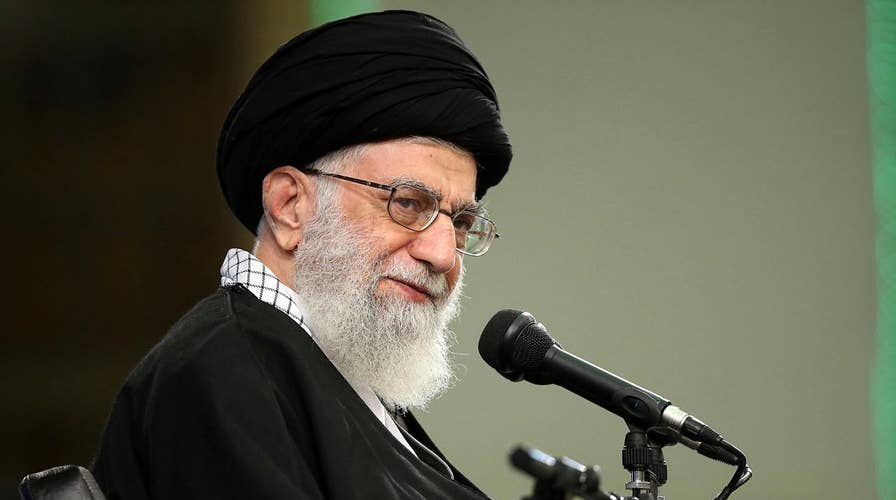Tensions escalate between Iran, new administration
Ayatollah mocks rocky rollout of travel ban
DUBAI, United Arab Emirates – The head of the United Nations' atomic agency said Tuesday the administration of U.S. President Donald Trump has yet to be in touch with him or others about their criticism of the Iran nuclear deal.
Yukiya Amano, the director-general of the International Atomic Energy Agency, told The Associated Press that his organization was "in constant touch" with the U.S., but had yet to hear from the new administration on their concerns.
"I'm expecting to have direct contact with the new administration very soon," Amano said.
Trump has signaled he wants to take a harder line on Iran than his predecessor Barack Obama, for whom the deal reached between Iran and world powers was a major foreign policy achievement.
Trump included Iran in his travel ban affecting seven Muslim-majority countries. During his campaign, Trump said he wanted to renegotiate the Iran deal, without elaborating.
The White House could not be immediately reached for comment.
Amano said the Iranian government also had yet to reach out on Trump's comments, though it remained in touch with U.N. atomic officials. He mentioned his trip in December to Tehran, in which he met President Hassan Rouhani and others.
"Why not meet again in the near future?" he added.
In response to the U.S. Congress extending some sanctions on Iran, the country announced in December it would draw up plans to build nuclear-powered ships . The nuclear deal allows Iran to conduct peaceful atomic research.
Iran's mission to the U.N. did not immediately respond to a request for comment Tuesday.
The accord limits Iran's ability to enrich uranium in exchange for the lifting of economic sanctions. Western powers struck the deal in order to deny Iran the ability to quickly develop nuclear weapons. Iran insists it has never sought nuclear arms.
Amano, in Dubai as part of the annual World Government Summit, said Iran had yet to be in touch with him or any of his officials about their own concerns over the posture of Trump's administration.
Amano said the deal has held up despite a "number of events," like Iran slightly exceeding its heavy water allotment. "We have been monitoring," Amano said. "When there's a certain indication, we can detect it immediately."
Heavy water is a concern because it is used to cool reactors that can produce substantial amounts of plutonium, which can be used in the core of nuclear warheads.
In November, the AP obtained a confidential U.N. report showing Iran had slightly exceeded its heavy water allotment of 130 metric tons (143.3 tons) by 100 kilograms (220 pounds). Iran later transferred some of its excess heavy water in a sale to Oman, the sultanate on the Arabian Peninsula that has served as a go-between for Iran and the U.S.
On Tuesday, Amano stressed that Iran's stockpile of low-enriched uranium remained below the level required of the nuclear accord.
"The IAEA is functioning as the eyes and ears of the international community," Amano said.





